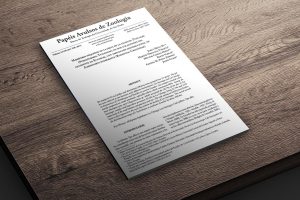Screening of Antibacterial Activity of Some Resupinate Fungi, Reveal Gloeocystidiellum lojanense sp. nov. (Russulales) against E. coli from Ecuador
| Título: |
Screening of Antibacterial Activity of Some Resupinate Fungi, Reveal Gloeocystidiellum lojanense sp. nov. (Russulales) against E. coli from Ecuador
|
| Identificador de recurso: | https://www.mdpi.com/journal/jof |
| Fecha: | 2023-01-01 |
| Autor: | Jaramillo-Riofrío, Andrea; Decork, Cony; Suárez, Juan Pablo; Benítez, Ángel; Castillo, Gabriel; Cruz, Darío. |
| Otros colaboradores: | |
| Editorial: | Journal of Fungi |
| Derechos: | Acceso abierto |
| Descripción |
Bacterial resistance to antibiotics is a serious public health problem that needs new antibacterial compounds for control. Fungi, including resupinated fungi, are a potential source to discover new bioactive compounds efficient again to bacteria resistant to antibiotics. The inhibitory capacity against the bacterial species was statistically evaluated. All the species (basidiomata and strains) were molecularly characterized with the ITS1-5.8S-ITS2 barcoding marker. The strains Ceraceomyces sp., Fuscoporia sp., Gloeocystidiellum sp., Oliveonia sp., Phanerochaete sp., and Xenasmatella sp. correspond to resupinate Basidiomycetes, and only the strain Hypocrea sp. is an Ascomycete, suggesting contamination to the basidiome of Tulasnella sp. According to the antagonistic test, only the Gloeocystidiellum sp. strain had antibacterial activity against the bacterial species Escherichia coli of clinical interest. Statistically, Gloeocystidiellum sp. was significantly (<0.001) active against two E. coli pathotypes (O157:H7 and ATCC 25922). Contrarily, the antibacterial activity of fungi against other pathotypes of E. coli and other strains such as Serratia sp. was not significant. The antibacterial activity between 48 and 72 h increased according to the measurement of the inhibition halos. Because of this antibacterial activity, Gloeocystidiellum sp. was taxonomically studied in deep combined morphological and molecular characterization (ITS1-5.8S-ITS2; partial LSU D1/D2 of nrDNA). A new species
Gloeocystidiellum lojanense, a resupinate and corticioid fungus from a tropical montane rainforest of southern Ecuador, with antibacterial potential against E. coli, is proposed to the science
|
| Claves | Basidiomycota, Cajanuma, Gloeocystidiellaceae, ITS1-5.8S-ITS2, resupinates. |
| Relación | ISSN-e: 2309-608X |
| Cobertura | EC |
| Idioma | en |
| Volumen | 9 (1):54 |
| Formato | |
| Tipo de recurso | texto |
| Fuente | http://dx.doi.org/10.3390/jof9010054 |
| Nombre de archivo | http://dx.doi.org/10.3390/jof9010054 |



